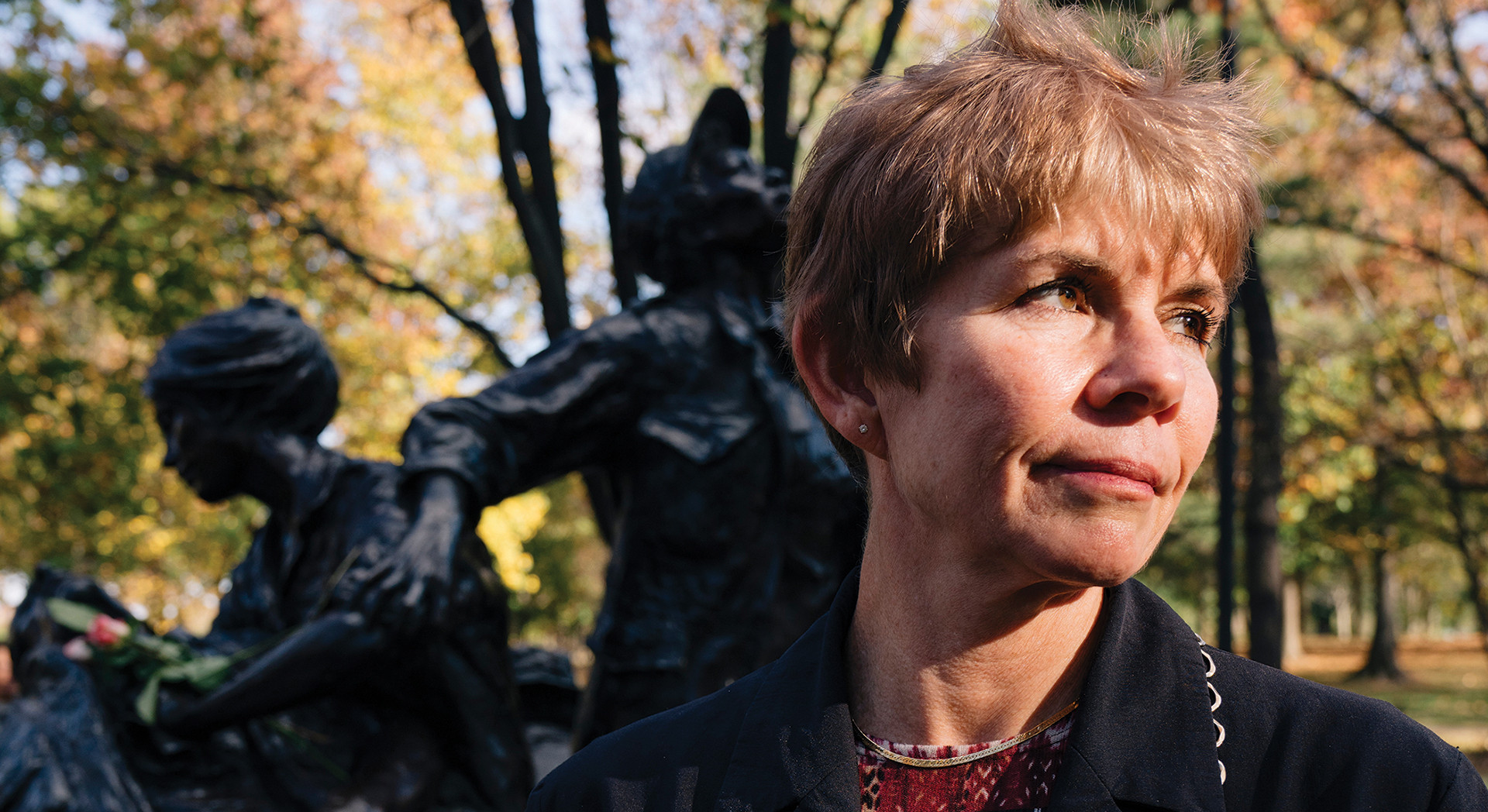
The daughter of a CIA officer recalls her family’s experiences living in Saigon at the end of the Vietnam War.
Kat Fitzpatrick witnessed the beginning of the fall of Saigon as an American girl living in Vietnam. Her father, James Welch, was a Navy veteran working for the CIA.
Their family moved to Saigon in July 1974, just before Fitzpatrick turned 8. Decades later, friends encouraged her to write a book about that experience. Drawing on her background as a journalist, she authored “For the Love of Vietnam: A War, A Family, A CIA Official, and the Best Evacuation Story Never Heard.”
“I wanted to tell the story about my father just as I would if I was reporting about him,” she says. “Who, what, when, where and why.”
Fitzpatrick’s book is a collection of memories, including a truly scary Halloween, the ongoing war and security issues, and how her father successfully evacuated nearly 1,000 Vietnamese who worked at House Seven – a propaganda radio station run primarily by the South Vietnamese – as the North Vietnamese Army closed in on Saigon in late April 1975.
Fitzpatrick spoke with The American Legion Magazine about how living in Saigon shaped her worldview, and why telling her family’s story is her way of honoring those who served.
A lot of time has passed. What’s a takeaway now as you reflect back on those years?
The most startling thing is I still find myself getting butterflies in my stomach or going, “Oh my God, I can’t believe we were there in the midst of a war zone.” The North Vietnamese army was advancing on the city. Being witness toall this and having no way to process it ... I still don’t know quite how I psychologically came through all of that.
Describe where you lived in Saigon.
It was in the middle of the city; it wasn’t enclosed like an American compound. But it was a narrow alley. Our house had gates and a steel fence. One of the weirdest things was when my brother challenged me to climb the fence. When I reached up to show that I could reach higher than him, the point of the fence caught in my wrist. The guards and the chauffeur were trying to get me down. But my hand was stuck. It took me a few minutes to get my wrist off the pointy structure. It didn’t bleed, but it was just a big weird white hole for a while. That’s sort of a great analogy for the whole story: It didn’t bleed, but it wasn’t your normal childhood either.
How was your father selected for this duty?
One of the difficult things when you’re writing about a CIA official is that there’s not a lot of information. He was sent to Korea to work on behalf of the U.S. government, and he was broadcasting propaganda into China. He was basically changing the way people think.
How did those 10 months in Vietnam shape your worldview?
Having lived overseas for five years, I noticed as time went on that I had a much more “world” view than other people. I had lived where people were literally living on the streets, especially in Saigon. I had this broad view of how differently people lived in different parts of the world. It was just ingrained in me. In college, I was on the cross country team. One of the boys said, ‘You always have to be the tough person.’ Having four brothers probably was part of it. But I had this feeling of being on the defensive. Even now, 50 years later, sometimes I wonder why I feel like I’m always fighting. I’m always having to be ready for what’s next.
What role did the Vietnam Wall play in your decision to write the book?
In 2012, I started writing about Vietnam. I had such a visceral experience. It was almost like this wave went over me, like I had to do this. But to write about it seemed like hubris. I was a child when I was there, and so many veterans had been impacted. As I wrote about that, I figured that I need to get down to the Wall to pay my respects. I met up with a veteran there. When I told him I wanted to write so people would remember, he said, “Yes, people have to remember.” So I felt like I had a permission or benediction.
How did your experience in Vietnam, as well as being the daughter of a veteran, inspire you to support veterans today?
All the work I’ve done has helped me interact with, touch or connect with different veterans.
I was honored to speak at a small Veterans Day event in 2023. There were veterans who were crying. I went up and said a little bit about my dad. For some of them, just being recognized for a moment was meaningful. Many of the soldiers who went there, to fight on behalf of our country, came back and were ostracized. It’s the worst wound anyone could suffer. That’s why we need to tell these stories – so people don’t forget.
In the book, you mention a chance encounter your dad had shortly before he died in 1992.
It was so interesting. My dad had traveled to a hospital in California for care. An intake doctor looked up from his clipboard and kept repeating, “Mr. Welch!” My father looked at the bright Vietnamese face and made the connection. “Were you on the American Challenger?’” my father asked, referring to a ship used in the evacuation. “Yes, I was. My whole family was. You saved our lives.”
- Magazine

